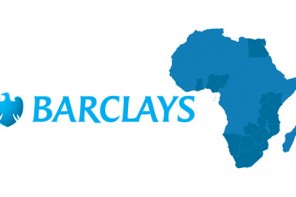As an entrepreneur having a clear vision and developing an auspicious business plan is very essential, especially if you plan on obtaining financing from a third party. This could be a financial institution or private individuals such as friends, family members, acquaintances etc. Noteworthy is that the option of raising funds through private individuals has in recent times gained tremendous popularity. Many more visionaries struggling with financial handicaps have resorted to what is commonly known today as Crowdfunding to jump-start their business ventures.
Crowdfunding is the practice of accruing small amounts of money over a specific period from a large number of people typically through the internet. Crowdfunding can be done on social media platforms like Facebook and Instagram or on fundraising sites like Kickstarter, GoFundMe, YouCaring, Indiegogo etc. Crowdfunding campaigns differ in terms of purpose. These campaigns fall under four main categories: reward-based and donation-based crowdfunding, debt and equity-based crowdfunding (crowdlending). ECrowd a crowdlending platform describes two types of crowdlending: Peer to Business (P2B) and Peer to Peer (P2P). P2B is a method of debt financing that enables people to lend money online to enterprise projects of any scale through small contributions. Meanwhile P2P enables people to lend their money to other individuals online, connecting borrowers and lenders directly. P2P crowdlending platforms promote and raise funds for smaller, individual projects or ideas. According to experts like David M. Freedman and Matthew R. Nutting, the history of Crowdfunding dates to 2003 in the United States when the Boston musician Brian Camelio and a computer programmer launched a website known as ArtistShare. The site offered a digital space where musicians could amass donations from their fans to produce digital recordings. It later transformed into a fundraising platform for film/video, photography projects and music.
The Crowdfunding Industry Report (2015) published by Massolution, suggests in 2015 there existed 1,250 active crowdfunding platforms worldwide. This industry is said to be growing about 300% a year with a high concentration in North America and Europe. The total fund raised by the global crowdfunding industry at the end of 2015 was estimated to be $34 billion. Although the World Bank report: Crowdfunding’s Potential for the Developing World (2013) estimates a $96 billion crowdfunding market in the developing world by 2025, countries in Africa are still among the lowest performing in the world in terms of utilizing crowdfunding. In 2015, the African crowdfunding market (all categories included) summed up to about $70 million, which accounts for less than half of 1% of global crowdfunding activity and about 21% of emerging market activity. That being said, can Africa rely on crowdfunding to revitalize its economy?
Read more about chatbanking in Africa
Despite unconducive national regulatory environments and technological hitches, crowdfunding in Africa is seen as an enormous opportunity to transform small- and medium-sized enterprises, which constitute more than 90% of businesses and also account for about 80% of employment in Africa (International Finance Corporation- IFC), into stable and viable businesses. ECrowd claims through crowdlending lenders get a higher interest rate than they would from a bank savings account and the borrowers can raise a loan quickly, efficiently and without any additional requirements, because the loans generate income as interest for the lenders, with interests being significantly 10 to 50 times higher than traditional banking investment products. Equity crowdfunding for instance, has been very popular among start-ups in the in Africa especially in South Africa, Nigeria, Kenya, Egypt and Ghana. A report by Disrupt Africa (2017) estimates start-ups raised US$195 million. Within the first half of 2018 this figure almost doubled. Amongst the numerous already existing crowdfunding websites are Afrocentric platforms which focus on helping African Start-ups and entrepreneurs to solicit financing for their businesses and entrepreneurial ideas.
Jumpstart Africa is a reward-based platform in the US. This site connects African entrepreneurs with good business ideas and innovative tech, environmental and creatives projects, to people who can bring these ideas to fruition. Thundafund was founded in 2013 by two South African social entrepreneurs that raised up to $350,000 for entrepreneurs in its first 18 months of existence. LelapaFund is a French speaking platform that collaborates specifically with Africans living in the diaspora. Through crowd-investing on this platform, the African Diaspora can invest capital and skills back home. Co-founder Elizabeth Howard revealed it is viewed by investors as a cost-efficient and less risky way of getting involved in African projects.
Find out about the surge of Artificial Intelligence in Africa
M-Changa is a mobile crowdfunding platform founded by a Kenyan entrepreneur. It allows users to initiate crowdfunding campaigns and collect donations through SMS or online. Startme on its part, focuses on promoting South African entrepreneurs involved in social and creative projects: “be part of the next great invention, artistic masterpiece, or entrepreneurial effort – and be rewarded!”. Unlike other crowdfunding portals, the Egyptian investor network known as Shekra (Sharek Fekra that means “share an idea”) relies on a closed and secured network of wealthy investors to amass funds for start-ups or specific projects. In affiliation with the international online payment platform Paypal, Nigerian-based Funda Solva benefits from the already existing strong reputation and credibility of Paypal to expand African funding to the rest of the world, opening up to contributions as small as $1.
It is obvious that crowdfunding has a huge potential in Africa. Local players turned international such as the Kiro’o Games and many more owe their success to this alternative means of financing. However, not all successful campaigns make it to the finish line e.g. the Paris-based magazine Fashizblack: a “high-end fashion magazine dedicated to people of African descent,” co-founded by Laura Eboa Songue. It started initially as a French blog in 2008. Two years later an English version was launched, which prompted the team to create a crowdfunding campaign in 2011 to finance the publication of the print version. Although the campaign raised $45,000 publication stopped by the end of 2013 with only 9 issues due to poor planning and mismanagement. Strategic planning and dedication are prerequisites to a successful story. This does not only include time and resource management, but also being able to determine the right platform for the required monetary benefits. InfoDev Growing Innovation suggests emerging market entrepreneurs should ask themselves the following questions: what is the specific funding needed for the business? What type of financial instrument is best suited to raise that sort of capital? What platforms offer that instrument and are available in your region? Does that platform’s payment infrastructure allow contributions from your networks? In addition, clarity about the legal status of African crowdfunding organizations must be established in an effort to circumvent money laundering and fraud that scare away international and serious investors.
In 2015 the African Crowdfunding Association was founded, with the hopes of pushing for clear and simple crowdfunding legislation and harmonization rules across countries. Although the association has not succeeded in getting any laws passed, this demonstrate a cautious step towards establishing an operative legal framework for crowdfunding in Africa. Can crowdfunding conveniently jump-start the African economy? Yes, if only proper regulatory systems similar to those in the USA and Canada are put in place, and accommodating technological developments which support e-commerce are realized.





